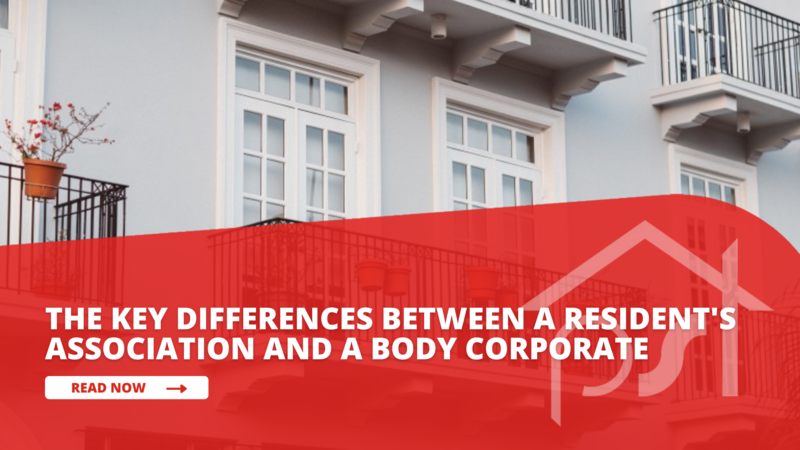
The Key Differences Between a Residents' Association and a Body Corporate
Looking at buying investment property in a new build development or existing complex? There are many things to take into consideration. However, one thing to be aware of is that you'll be required to join a body corporate or a residents' association (which one will be pre-determined by the development type).
You may already be familiar with the terms, but if you’re a bit hazy on the details, we’ve summarised the key differences below.
The Difference at a Glance
Body corporates have been around forever and are most often used for apartment buildings or developments that use unit titles (a common form of multi-unit complex ownership). As a member of a body corporate, you own your “unit title” but share the ownership of the land beneath the complex with all other purchasers. By law, unit title developments require a Body Corporate Management Agreement.
Residents’ associations are a newer concept most used to manage developments using fee simple titles (freehold). In this case, you own the land that your property is built on as well as your property. Townhouses built on fee simple titles are a better long-term investment when there is an established residents’ association. Why? Because there will be certain rules residents must follow which help retain the value of all other properties within the development (unless stated in the agreement, your neighbour won’t be able to paint their house an outlandish colour that devalues your property by association).
The Breakdown
Insurance
As a member of a residents’ association, your Residents’ Agreement ensures each home has an insurance policy in place, each year (this usually means you will pay your insurance through the residents’ association, rather than as an individual). There is the potential to save a significant amount of money on insurance by insuring all the homes at once, through the same company. Bear in mind though, landlord insurance is NOT covered by a residents’ association, if you’re a property investor you will need to organise this yourself.
In comparison, a body corporate is responsible for insuring the entire building or complex plus any common areas such as driveways or parking spaces. Insuring the complex as a group means that claiming insurance is far less complicated and time-consuming than if each unit were insured individually.
Maintenance
The primary purpose of a residents’ association is to protect the value of the homes throughout their life. This involves making sure common areas (such as walkways, fences, gardens, and access areas) are maintained and repaired. For things like retaining walls and individual building elements, the agreement will specify each owner’s obligations.
When it comes to body corporates, you will pay a fee that ensures the maintenance and repair of all common areas plus visual areas like the building’s roof, exterior walls, and sometimes retaining walls. For example, in an apartment block, the body corporate may arrange for the exterior of the building to be washed, this will be covered by body corporate fees. However, for townhouses under a residents’ association, washing of dwellings would be the responsibility of the individual owner. This means you pay less in fees to the residents’ association, but you will still have to pay maintenance costs over time.
Structure
A Residents’ association is set up prior to settlement to control the insurance and ongoing maintenance of common and visual areas. The Residents’ Agreement states what is to be done and a common account is used to hold funds that are put aside in advance to cover the costs.
A body corporate is set up in advance to control the management of insurance and all common and visual areas (such as the building’s exterior). Rules and annual costs are stated in a Body Corporate Agreement. Funds are put aside in advance, in the form of fees paid by property owners, to cover the costs.
Governance
Residents’ associations and body corporates both hold annual meetings. They both use a majority vote, to vote on matters that affect the group. However, residents of body corporates can also vote to use a different body corporate manager.
What does this mean for property investors?
Like with any property purchase, do your due diligence. When you’re calculating the cost of buying a property, make sure to budget for any ongoing body corporate or residents’ association fees, and unexpected remedial work.
______
DISCLAIMER: The above advice is written by Propertyscouts New Zealand (2020) Limited and is intended as a broad guide for educational purposes only. The advice should not be regarded as legal, financial or real estate advice. In all instances, you should make your own inquiries and seek independent professional advice tailored to your specific circumstances before making any legal, financial or real estate decisions.
______
